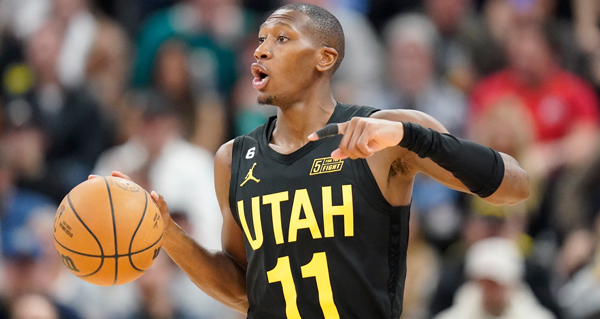Kris Dunn has nearly faded into the past tense. The former fifth overall pick sprained his knee toward the end of January 2020, just the other side of a great fissure in time, and has since then been rehabbing leg injuries, his reputation, or both simultaneously. At the time he went down, he was enjoying his best season as a pro, having shorn short all the parts of his game that were not quite NBA quality, focusing narrowingly on suffocating defense, driving the lane and keeping the ball moving on the other end. He was clocking 25 serious minutes a night for a broadly unserious Bulls team.
A month later, after news that the knee was likely going to end his season, Michael Pina wrote a piece comparing him to Tony Allen, which read as both a compliment and a condemnation. Allen was integral to the We Don't Bluff Grizz but toward the end of his career began to acquire an out-of-time quality, a man passing into a new era without the necessary tools. By the time Allen played his last game in 2017, the no-jumper defensive guard was becoming obsolete. Even moreso in 2020. Even moreso now. Seven-footers with limited range can have trouble getting by these days; if you're point guard-sized, it is practically a minimum requirement that you provide a spot-up threat from beyond the arc.
Dunn's inability to do this was endangering his career even before his MCL went, which screwed up his ankle, which screwed up his back, which screwed up his knee again, etc. In a diminished state, getting his wind back, he was an end of the bench option for the 2021 Hawks, cameoing unremarkably in a few regular season and playoff games. The following year, in a bleak and dispiriting role, he helped the Trail Blazers tank through March and April. (You give Kris Dunn the green light, and you're going to lose games.) Now he's a sub on a 10-day in Utah, where he might stick well into the spring, because the Jazz have exactly zero guards who are inclined to pass or defend. This is not the same thing as being a great fit, but Dunn's actually performed quite well, in the two games he's played so far, a pair of wins over the Spurs (barely an NBA team) and the Thunder (a bang-average one). The Jazz, unlike the '22 Blazers, are not in mess around mode. They're trying to make the playoffs, so Dunn won't play if he can't pull his weight, but he should do better with solid teammates and specific instructions. He will be told to do what he was once good at: play hard, hound your assignment, and don't make mistakes. That's something he can work with.
Fans have this generous tendency with players they want to like, where if they're not strong in a particular area, we assume they have an aptitude for other things, or that what they add is hard to quantify. (Blame Shane Battier and Daryl Morey for this.) If a guy is a poor shooter, we say he's a plus defender. If he doesn't get many assists, it's because he make the pass before the assist. He knows where to be and what to do. He's good for the locker room. The coaches trust him. He sets solid screens. This is all faintly silly but we return to it because it's a plausible explanation. There certainly are players in the league who do things that don't show up in the box score, and contribute to winning. Marcus Smart and Ricky Rubio types. But for every Marcus Smart, there are thirty guys who don't move the needle, or are actively bad. It typically takes us a while to realize or admit this, especially if a player was drafted in the top ten.
We can't truly know if Kris Dunn was washing out right as he suffered a career-altering injury. His rookie contract was wrapping up and he had probably earned himself a bench spot, either in Chicago or somewhere else. We weren't talking ourselves into the defensive part of his game; he really was heading toward an All-Defense selection. But his offense was still pretty terrible. In what was comfortably his most steady year, he was scoring a tick over seven points per game on 44.4 percent shooting. He had cut down on turnovers, but that was because he had basically stopped trying to pick up anything but the most simple kick-out assists. There's something to be said for knowing your limitations, but Dunn's limitations were spandex-tight.
It's now three years later, and he's lost a lot of developmental time to complications from the sprained knee. It's hard to work that jumper into anything like respectable shape when you can't string three healthy months together. But Kris Dunn has just enough acumen and attitude and Lottery Pick gleam left on him to earn a tryout on a decent team that's counting on him to provide something they don't have. We are not making it all up in our heads, thinking well of him because we want to: he has real talents to bring, and a body that for the time being will allow him to use them. They might be insufficient but at least, one more time, he can test their fullest extent.



